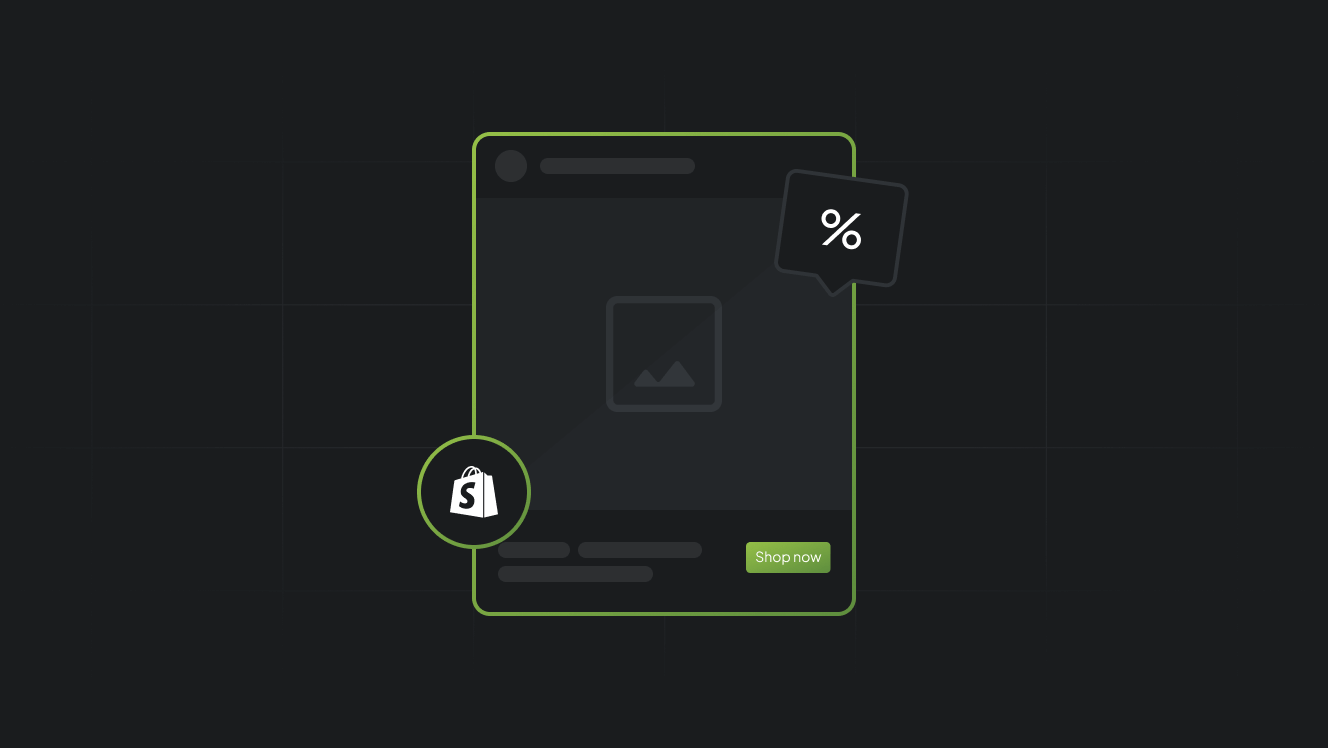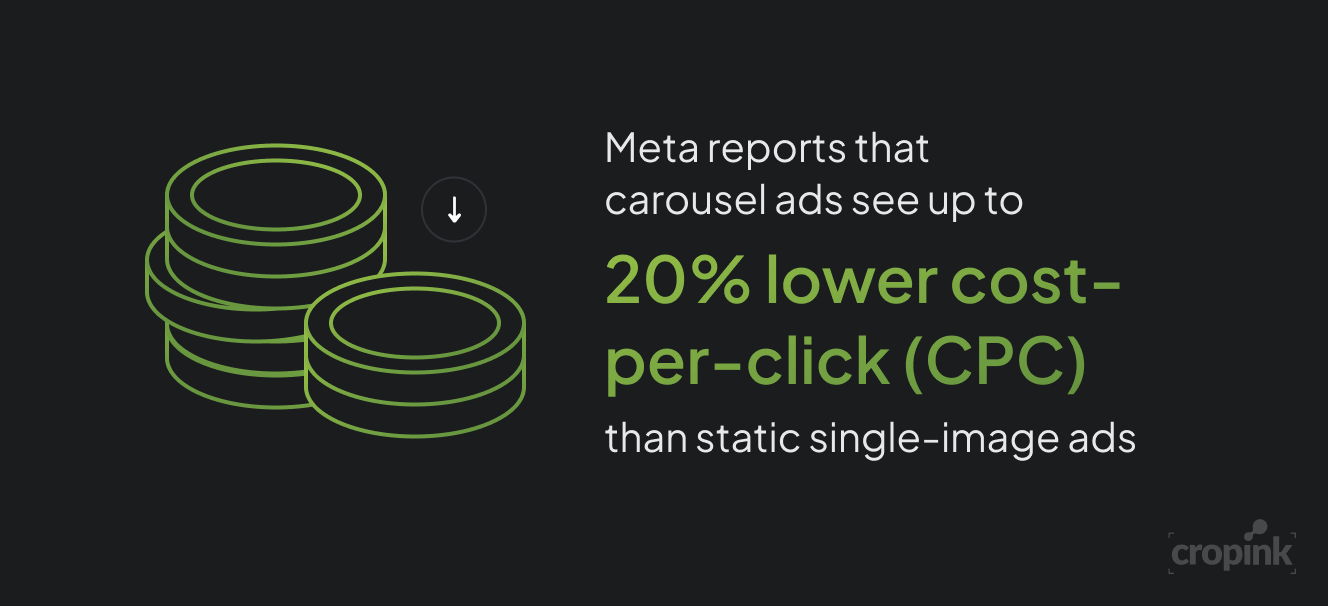Shopify Advertising in 2026: How to Drive More Sales with Smart Ads
Struggling to get traffic on Shopify? You’re not alone—over 2.1M merchants are fighting for attention. Discover the 2026 ad strategies top sellers use to turn clicks into customers without burning cash.



Ever feel like you're doing everything right on Shopify—great products, beautiful store—but the traffic just isn’t coming? You’re not alone. Over 2.1 million merchants are on Shopify, and the ones getting consistent sales? They’ve cracked the advertising game.
The truth is, simply “launching a store” doesn’t cut it anymore. In today’s ultra-competitive eCommerce world, paid advertising isn’t optional—it’s essential. But here's the catch: not all ad strategies are created equal. Run the wrong ads, and you'll burn cash fast. Run the right ones? You’ll turn browsers into buyers on autopilot.
In this guide, we’ll walk you through exactly how to advertise your Shopify store in 2025—what platforms work best, what it’ll cost, and how to turn clicks into conversions.
Let’s dive in.
Where can you advertise your Shopify store?
Let’s talk about placement. You have got options—plenty of them. But not every platform works for every business.
Here are the top channels Shopify merchants swear by:
| Platform | Best For | Avg CPC (2025) |
|---|---|---|
| Meta Ads (FB + IG) | Product discovery, retargeting | $0.70–$1.20 |
| Google Ads | High-intent searches | $1.00–$2.50 |
| TikTok Ads | Trendy, impulse buys | $0.60–$1.10 |
| Pinterest Ads | Home, fashion, beauty | $0.80–$1.30 |
| YouTube Ads | Product storytelling | $0.05–$0.30 (CPV) |
Each platform has its own flavor.
Want to sell fashion or lifestyle goods? TikTok and Instagram are goldmines.
Want to run a niche product with high search demand? Google might be your winner.
Best-performing ad types for Shopify in 2026
Let’s be honest—eCommerce ads aren’t one-size-fits-all. Some ads are built to stop the scroll. Others are designed to close the sale.

Here’s what’s dominating Shopify ad performance in 2025 and why it works so well:
1. Carousel Ads (aka the “window-shopping gallery”)
Why show one product when you can show five? Carousel ads let you feature multiple products or features in a single swipeable format.
They’re great if you need to:
- Highlight different color options or product variants
- Tell a brand story across frames
- Increase engagement with interactive swipes
Meta reports that carousel ads see up to 20% lower cost-per-click (CPC) than static single-image ads.
2. Dynamic Product Ads (DPAs) – Fully automated, fully targeted
These are your best friends when it comes to personalization. DPAs automatically show the right product to the right user based on their past behavior, like visiting your site or adding to cart but not buying.
Why they rock:
- They adapt to each viewer in real-time
- Great for scaling without manually creating dozens of ads
- Integrated with Shopify’s product catalog through the Meta or Google app
Bonus: Shopify’s 2025 Meta integration now enables one-click catalog syncing and real-time product availability updates, so, no tech headaches.
3. Google Shopping Ads– Where intent meets action
These product-based ads appear at the top of Google search results and show your product image, price, and store name.
It is perfect for:
- High-intent buyers actively searching for something
- Competitive niches (fashion, electronics, home goods)
- Driving bottom-of-funnel conversions
Stores using Google Shopping via Shopify’s Google & YouTube Channel report an average 3.5x ROAS when optimizing feed quality and titles.
4. Video Ads – Scroll-stopping, story-driven, addictive
If you still have any doubts about the importance of video ads, note that TikTok ads using Shopify’s TikTok channel see up to 60% higher click-through rates than non-video formats.
Short video content is not just entertainment, it’s selling.
What makes video ads work:
- Showcase your product in action
- Leverage UGC or influencer-style content for authenticity
- Deliver more emotional impact than static images
5. Retargeting Ads – The digital “hey, you forgot something!”
Retargeting ads remind people of products they browsed, added to cart, or abandoned at checkout. They are a must-have to plug leaks in your conversion funnel.
They are powerful because:
- They target warm leads who are already interested
- It offers a second (or third) chance to convert
- Easily run via Meta, Google, or Shopify apps like Rontar, AdRoll, etc.
Pro Tip: For maximum impact, use discount codes, urgency (“Only 3 left!”), or free shipping messages in your retargeting ads.
How much does Shopify advertising really cost?
Here’s a quick breakdown of what to expect in Shopify ad cost:
| Expense | Average Monthly Cost (Small Biz) |
|---|---|
| Ad spend (Meta/Google/TikTok) | $300–$2,000+ |
| Shopify Apps (for tracking, feed management) | $30–$80 |
| Creative (photos/videos) | $100–$500 |
| Freelancer/Agency (optional) | $500–$2,000+ |
And remember—transaction fees and ROAS matter. You might spend $1,000 but make $4,000 back. That’s a 4x ROAS. Always measure performance, not just spend.
Do I need Shopify apps to run ads?
Short answer: Not always. But some apps make life easier (and ads better).
Below, we have curated a list of top apps for you to consider:
- Facebook & Instagram by Meta– It integrates your catalog and pixel.
- Google Channel– It syncs your products for Shopping Ads.
- Adwisely– It will help you automate the retargeting.
- Trackify X– It has advanced pixel and event tracking options.
The good part? Many of these apps are free to install and only charge based on usage or tier.
How to track your ad results like a pro
Shopify’s built-in analytics are decent, but if you pair them with Meta Ads Manager or Google Analytics, you get deeper insights.
And remember that impressions and clicks don’t pay the bills. You need to know:
- ROAS (Return on Ad Spend) – Did your $1 turn into $3 or 30¢?
- CPA (Cost Per Acquisition) – How much did that sale cost?
- CTR (Click-Through Rate) – Are people engaging?
- AOV (Average Order Value) – Can you upsell/cross-sell to increase returns?
Future-proofing your Shopify ads
Let’s be real: in 2025, polished studio ads are losing ground to raw, real content. What’s winning? UGC. If you’re not using it yet, you’re leaving conversions on the table.
Here’s the deal:
User-generated content feels authentic. It's relatable. It's social proof at scale. Customers trust other customers way more than your perfectly edited campaign.
And guess what? UGC outperforms traditional brand content in engagement, CTR, and ROAS across Meta, TikTok, and Instagram.
So what should you be doing right now?
- Ask your happy customers to share unboxing videos or reviews.
- Partner with micro-influencers (not just the big names) for real-world demos.
- Run your ads in UGC style—yes, even if you shoot them in-house.
But UGC is just the start; the ad landscape is evolving fast, and you need to stay ahead of the curve.
You need to prepare for:
AI-Powered targeting is here to stay
Platforms like Meta and Google are leaning heavily into automation.
Advantage+ (Meta) and Performance Max (Google) are not optional anymore—they're becoming the standard.
These AI tools automatically test combinations of creative, copy, and targeting, giving you better results with less manual work.
You: Provide strong creatives and clear conversion goals.
AI: Handles the rest.
Privacy is still a pain, but you have got options
Yep, iOS 14+ changed the game, and tracking isn’t getting any easier. Attribution is murky. Pixels aren’t as powerful.
But don’t panic—you just need to shift your strategy:
- Build first-party data: Capture emails, phone numbers, and preferences right on your store.
- Create solid email/SMS flows to nurture customers beyond the ad click.
- Use Shopify tools like Customer Events API and Meta's Conversion API to rebuild lost visibility.
It’s about owning your data, not renting it.
Omnichannel is the new normal
Your customers aren’t just on Instagram anymore. They scroll TikTok, search on Google, watch YouTube, click on Pinterest, and chat on Messenger, all before they buy.
You need to be everywhere they are, not just where you’re comfortable.
This means:
- It runs cross-platform campaigns
- Keep creative consistent across apps
- Retarget users from one app to another
It’s not a straight line to purchase anymore. It’s a loop, and your job is to show up at every step.
Final thoughts
In 2025, paid advertising isn’t just an optional lever—it’s the engine that powers serious eCommerce growth. Whether you’re a brand-new Shopify merchant or are scaling a seven-figure store, a smart ad strategy is what separates passive listings from a thriving funnel.
Start simple. Test small. Learn what your audience responds to. Then double down on what works.
FAQs
No, while Shopify itself doesn’t charge for running ads, you’ll pay platforms like Meta, Google, or TikTok based on your ad spend and bidding strategy. Ad spend starts as low as $5/day, but returns depend on how well you optimize.
Meta Ads (Facebook & Instagram) are ideal for beginners thanks to Shopify's built-in integration, easy catalog sync, and powerful retargeting. TikTok Ads are another great option if your audience skews younger.
Yes, but apps like Facebook & Instagram by Meta or the Google Channel make setup smoother. They help sync your product catalog, install tracking pixels, and manage ad campaigns directly from Shopify.
Start with $300–$500/month if you’re testing. Scale up once you hit a consistent ROAS (e.g., 3x or more). Keep in mind you may also need to budget for creatives, copywriting, or agency help.
Across Meta and Google, many Shopify stores report a 2.5x–4.5x ROAS on average. The key drivers? Ad quality, audience targeting, landing page performance, and your product’s demand.
Use Shopify’s Analytics dashboard along with Meta Ads Manager or Google Ads. For advanced users, connect GA4 (Google Analytics 4) for deeper funnel insights and event tracking.
Not at all. Shopify’s ecosystem is built for non-tech users. The ad setup process is guided, and most apps offer drag-and-drop functionality. Still, if you want to scale fast, learning the basics of ad metrics can really help.

Manisha is a Data-Driven Marketing Expert who turns numbers into narratives and ad clicks into conversions. With a passion for performance marketing and a sharp eye for analytics, she helps brands cut through the noise and maximize their impact in the digital space.

Leszek is the Digital Growth Manager at Feedink & Cropink, specializing in organic growth for eCommerce and SaaS companies. His background includes roles at Poland's largest accommodation portal and FT1000 companies, with his work featured in Forbes, Inc., Business Insider, Fast Company, Entrepreneur, BBC, and TechRepublic.
Related Articles












How Can Cropink Help?
Start with Cropink is easy and free
No credit card required